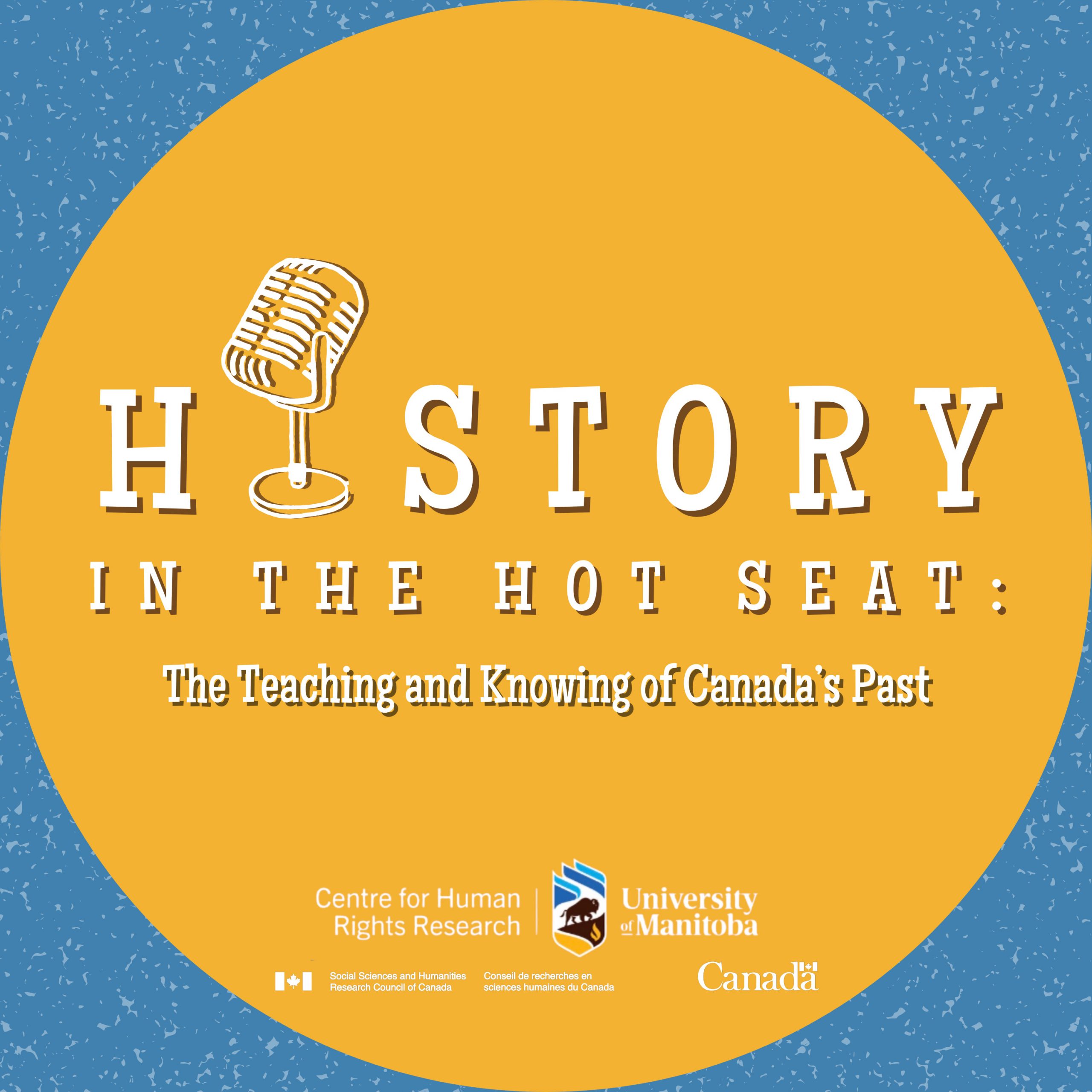History in the Hot Seat: The Teaching and Knowing of Canada’s Past
July 18, 2024
Hannah Belec

The “History in the Hot Seat: The Teaching and Knowing of Canada’s Past” Project is part of the 2024 Knowledge Synthesis Grant Competition, funded by the Social Sciences and Humanities Research Council (SSHRC) in partnership with Canadian Heritage, Genome Canada, and UK Research Innovation’s Arts and Humanities Research Council (UKRI-AHRC). The theme of the 2024 Knowledge Synthesis Grant Competition, “Evolving Narratives of Cultures and Histories,” aims to assess and mobilize the existing knowledge on how factors such as globalization, war, colonization, racism, slavery, climate change, technology, social media, and more have shaped or changed cultural and historical narratives.
Following the theme and goals of “Evolving Narratives of Cultures and Histories,” the “History in the Hot Seat” Project, in collaboration with the Centre for Human Rights Research and 101.5 UMFM, has produced a podcast series that explores what it means to learn and teach Canadian history, considering ongoing histories of colonialism and Indigenous dispossession.
Episode 1
In the first episode of the “History in the Hot Seat: The Teaching and Knowing of Canada’s Past” Podcast, Dr. Adele Perry, Dr. Jarvis Brownlie, and Dr. Jocelyn Thorpe discuss the project’s objectives, outcomes, and impacts with interviewer Hannah Belec. The group also reflects on historical education and commemoration in Canada before and after the Truth and Reconciliation Commission’s 2015 Report.
Works mentioned in the episode:
- About Phyllis Webstad and the Orange Shirt Society: https://orangeshirtday.org/phyllis-story/
- Whitfield, Harvey Amani. North to Bondage: Loyalist Slavery in the Maritimes. UBC Press, 2016.https://search.lib.umanitoba.ca/permalink/01UMB_INST/1f1g7b3/cdi_proquest_ebookcentral_EBC5331322
- Herstein, H.H., L.J. Hughes, and R.C. Kirbyson. Challenge & Survival: The History of Canada, 1970. https://search.lib.umanitoba.ca/permalink/01UMB_INST/gnigpm/alma99122656420001651
- Menchú, Rigoberta and Elisabeth Burgos-Debray. I, Rigoberta Menchú: An Indian Woman in Guatemala, 1984. https://search.lib.umanitoba.ca/permalink/01UMB_INST/gnigpm/alma99118874220001651
- Frankenburg, Ruth. White Women, Race Matters, 1993. https://search.lib.umanitoba.ca/permalink/01UMB_INST/1f1g7b3/cdi_proquest_ebookcentral_EBC5298946
- Truth and Reconciliation Commission of Canada. Final Report of the Truth and Reconciliation Commission of Canada. Volume One, Summary: Honouring the Truth, Reconciling for the Future, 2015. https://search.lib.umanitoba.ca/permalink/01UMB_INST/gnigpm/alma99148985229201651
Episode 2
In the second episode of the “History in the Hot Seat: The Teaching and Knowing of Canada’s Past” Podcast, Métis educator and administrator Kim Dudek and interviewer Hannah Belec discuss Kim’s evolving approach to teaching social studies in Manitoba; the relationship between curriculum mandates and classroom practice; recent updates to and the shortcomings of the curriculum that addresses Canada’s history of Indigenous dispossession; the role and availability of professional development for teachers to decolonize education; the importance of student activism; and the role of administration in advancing decolonization efforts in schools.



